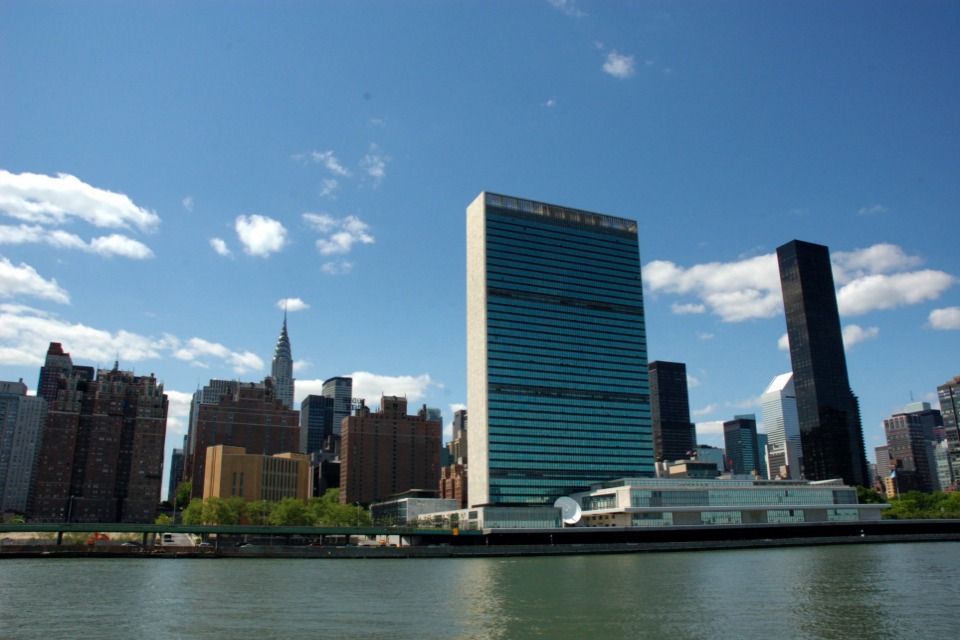"The global battle against Ebola has only just begun; complacency is now our worst enemy."
Statement by Ambassador Lyall Grant of the UK Mission to the UN, to the UN General Assembly meeting on Ebola

Mr President,
Many thanks for convening this critical meeting. And I want to thank Special Envoy Nabarro and Special Representative Tony Banbury for their powerful briefings and timely report on UNMEER’s progress. The United Kingdom is extremely grateful for their tireless work in leading and coordinating the UN and partners’ efforts to combat this epidemic.
Mr President,
The fight against ebola is a global battle and the world must continue to deal with it as such. The United Kingdom will continue to play its part in this battle. So far, we have committed $350 million to tackle Ebola. We have 820 UK military personnel on the ground in Sierra Leone to support country efforts, in addition to UK civilian staff . Yesterday my Foreign Secretary visited Sierra Leone to offer his support to the people of Sierra Leone, assess the UK’s contribution and understand what we need to do next. As he said then, “We are beginning to see early signs of impact but despite our and others’ efforts this battle has only just begun. ”
Since we last convened, the United Kingdom has increased our package of support to Sierra Leone. This includes 700 treatment beds which will provide care to up to 8,800 patients over six months. Last week, the first UK funded treatment centre opened in Kerrytown. Five more are currently being built in an effort to get ahead of the curve in controlling Ebola in Sierra Leone.
We are also supporting others to deliver critical safe burial work and WHO training of over 120 health workers a week. The UK naval ship Argus and three helicopters are facilitating greater mobility, reassurance and logistical support for heroic medical teams and aid experts. We are also working to deliver 200 community care centres across Sierra Leone over the next couple of months and are rolling out our command and control model to districts.
But we still have a mountain to climb. We need help from others to ensure that the necessary resources to deliver rapid, effective action on the ground are in place. A key challenge across the region is coordinating resources to ensure that they are all in the right place at the same time. We thank those states and partners already making a critical contribution in Sierra Leone. But we issue a call to all to explore whether they can help to fill two key missing pieces in the UK’s contribution in Sierra Leone.
First, we need more healthcare workers to staff the six Ebola Treatment Centres that are being built. We can provide pre-deployment training, in-country training and guidance for any member state able to deploy a large number of staff on rotation.
Secondly, we need laboratory technicians and biomedical scientists to help UK staff run the laboratories. Rapid and accurate diagnosis of Ebola is critical to treatment and containment.
Mr President,
We have heard today that the United Nations, through UNMEER, is ramping up its efforts in the three most affected countries. The challenges are huge, but we know that the will to succeed is great. The UK has donated $30 million to the UN’s Multi Donor Trust Fund. We are grateful to Special Envoy Nabarro and SRSG Banbury for providing, respectively, the strong political leadership and operational direction necessary to lead the international effort. As my Sierra Leonean colleague has just pointed out, we hope that UNMEER’s numbers can be rapidly geared up on the ground, including especially at the critical district level. UNMEER is the command and control centre for the whole UN system and the constituent parts must pull closer together in delivering coordinated, rapid action. If we, the international community are not doing enough, please tell us when and how we can help.
The international community, led and coordinated by UNMEER, must be skilled multi taskers. UNMEER must continue to spot and plug the gaps to treat existing cases and ill people, whilst ensuring countries are prepared to deal with and combat emerging threats. Given the changing nature of the situation on the ground, a flexible, yet rapid approach is needed.
We are grateful to UNMEER for continuing to strengthen partnerships and coordination with other key responders, including UN member states, the EU, AU and NGOs.
In addition, the United Nations must plan now for the future reconstruction efforts ahead. We must also, collectively, move faster in supporting the development of vaccines and stand prepared to deploy them at scale, should the circumstances require.
Finally and critically, a gaping hole in the overall response is the lack of non ebola healthcare for international healthcare workers. We cannot expect these brave men and women to deploy without this. So we must fix it, fast. The United Kingdom supports use of the Multi Donor Trust Fund for this purpose.
Mr President,
The global battle against Ebola has only just begun; complacency is now our worst enemy.
I thank you.